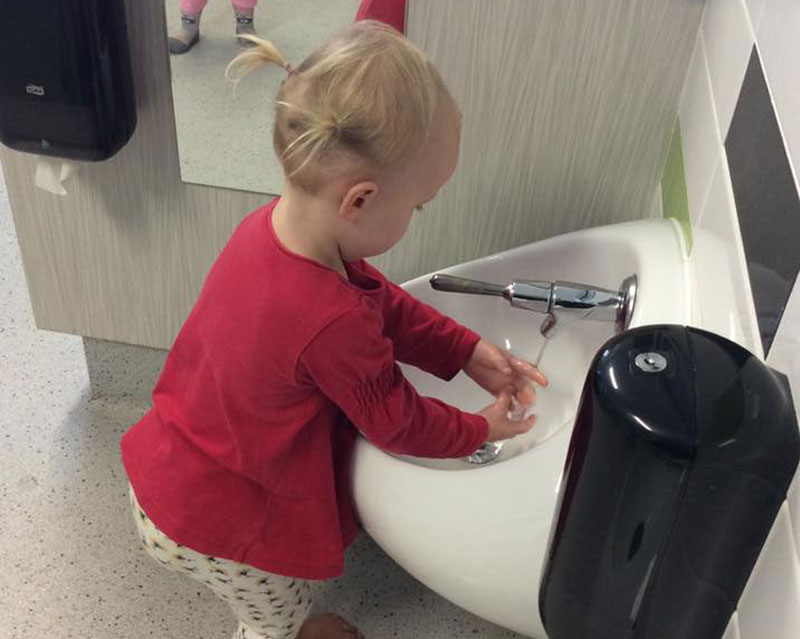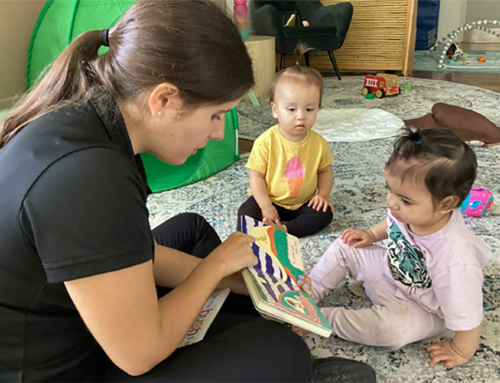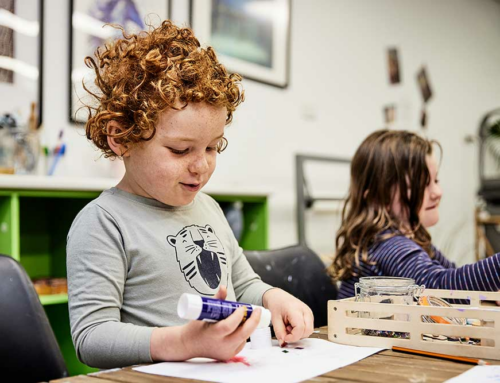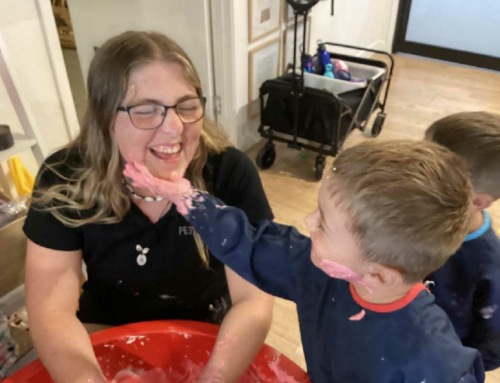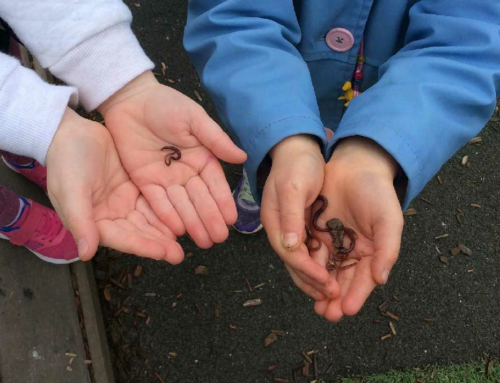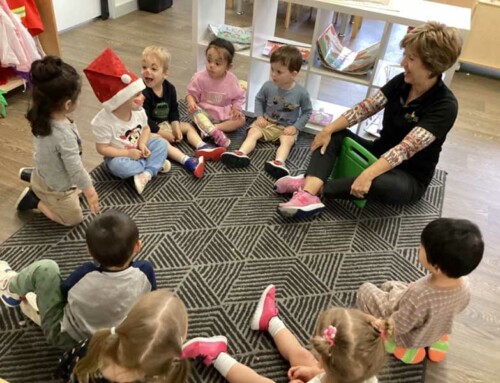Nurturing good hygiene practices in child care is necessary for a child’s development. Learning self-hygiene tasks helps to stop the spread of disease, and encourages children to develop lifelong positive hygiene habits; an essential aspect of early education and care services.
Personal hygiene routines aid in protecting our immune system from being overcome by harmful germs. Germs, both bacterial and viral can spread through touch or as airborne particles. However, by teaching children the importance of personal hygiene, we can help reduce disease.
One of the most important good hygiene habits that children need to learn is hand washing, which reduces the risk of them getting ill. But there are other self-help and self-care skills too, like regularly showering or brushing teeth, that can also limit cross-infection.

How do you help children learn basic hygiene practices in child care?
Supporting good basic hygiene practices in child care encourages children to acquire positive hygiene habits that last a lifetime. At the same time, our methods reduce the risk of cross-infection between children and adults within the centre.
“As Educators, we can reduce the spread of infection by promoting and role modelling good hygiene habits to our children,” says Astrid. “Encouraging children to learn self-help and self-care skills also supports good hygiene practices.”
“By strengthening these practices through our child-led program play experiences, we help children to develop good habits and routines that keep them healthy and stop the spread of germs. These repeated practices are important for children as they provide a sense of security and safety.”
“By practising hygiene routines, like washing hands before and after mealtimes, and providing children with positive feedback and support, we help to nurture a safe and secure environment with healthy habits that they can take with them into adulthood.”

What hygiene methods do you use to minimise cross-infection?
“Our Educators, families and children practise a range of hygiene procedures and routines to minimise cross-infection. Drop-offs and pick-ups include a focus on personal hygiene such as hand washing and cleaning of digital touch points during our peak hours to reduce contamination.”
“All of our centres include written hygiene policies and procedures that address government recommendations and guide our Educators’ and children’s’ daily routines and systems. Role modelling is an effective way to encourage and support children in good hygiene practices in child care.”
“When we are good role models for children, we influence their positive behaviour. Children observe and copy what we do. They take notice of how and when we wash our hands and clean up after ourselves. They repeat this behaviour when role-playing, and through their daily routines.”
“Everyday, we encourage and teach children to use prevention methods to reduce the risk of cross-infection. We help them to:
- Wash their hands often and diligently with soap and water.
- Wipe their noses with a disposable tissue and to put it in a rubbish bin.
- Use the toilet and wash their hands after.
- Understand the importance of not sharing cups and utensils.
- Practise good hygiene habits by hanging signs and posters.
- Avoid touching things that may be potentially infectious.”
“We also work with families to promote good hygiene practices and health, such as, the benefits of brushing teeth twice a day and regular bathing that reduces the threat of germs and disease, and keeps our children looking and smelling clean and fresh”.
“Our Educators regularly and systematically keep centre equipment and facilities such as bathrooms, kitchens, sleep and rest areas, and play areas cleaned. We also make information on immunisation schedules and hygiene practices available to all our child care families, as well as exclusion periods for illness and infectious diseases.”

Why is it important to teach children good hygiene habits?
Astrid believes that when we help children to develop good hygiene habits, it creates a sense of security and safety and reduces the threat of disease, but it has other benefits too.
“By learning how to avoid the spread of germs, children also learn how to stay clean and fresh. Personal hygiene routines affect our health but also other aspects of life, such as social interactions or our ability to work.”
“During the early years, good hygiene habits start as something that we do for our children, to something that they learn to do for themselves. Learning personal hygiene skills boosts a child’s confidence. It gives them the tools they need to become independent and do things on their own.”
“Learning good hygiene and toileting habits are one aspect of self-care skills. When children develop these skills, they also practice other early learning building blocks such as gross and fine motor skills, sensory processing, language comprehension and the ability to follow simple routines.”
“By embedding basic hygiene learning experiences in our curriculum, we support children’s health and wellbeing. The promotion of self-help skills during play and through the day’s routines and rituals provides children with practise to develop good hygiene practices for life.”

Nurture your child’s love for lifelong learning with Petit Early Learning Journey
At Petit ELJ, we inspire children to engage in rich child-led experiences. Practising good hygiene habits are one of several self-care areas that we promote. We also support families and children with physical literacy and developing a healthy approach to food and nutrition.
Our Educators value a holistic learning approach where children come first. We want to give your child the best start for lifelong learning by focusing on strengthening your child’s emotional, social and cognitive intelligence.
Meet our team and discover more about Petit ELJ’s unique early education and care program by booking a tour now at your nearest centre.
